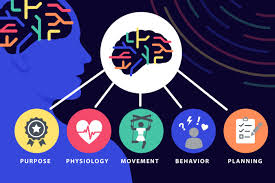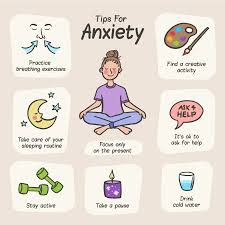Yoga for Mental Health: Balancing the Mind-Body Connection
Introduction:

In the fast-paced world we inhabit, maintaining mental well-being is more crucial than ever. Amidst the various approaches to achieving this balance, yoga stands out as a holistic practice that intertwines the physical and mental realms. This ancient discipline has gained immense popularity for its profound impact on mental health, fostering a harmonious connection between the mind and body.
The Mind-Body Connection:

Yoga's core philosophy revolves around the interdependence of the mind and body. Through mindful movement, breath control, and meditation, yoga seeks to create a seamless integration between these two facets of our being. This mind-body connection forms the foundation for enhancing mental health, addressing issues such as stress, anxiety, and depression.
Stress Reduction:

One of the primary benefits of yoga for mental health is its ability to alleviate stress. The intentional focus on breath and movement in yoga activates the body's relaxation response, reducing the production of stress hormones. Regular practice can contribute to lowered stress levels, promoting a sense of calm and tranquility in daily life.
Anxiety Management:

Yoga provides an array of tools for managing anxiety effectively. Techniques like pranayama, which involves breath control, play a pivotal role in regulating the nervous system. By channeling focus inward, individuals can navigate anxious thoughts and promote a sense of tranquility. The physical postures or asanas, coupled with mindful breathing, help release tension stored in the body, contributing to anxiety reduction.
Depression and Mood Enhancement:

Scientific studies have indicated that yoga can have a positive impact on mood and alleviate symptoms of depression. The combination of physical movement, breath awareness, and meditation stimulates the release of neurotransmitters like serotonin and endorphins – the body's natural mood enhancers. Regular yoga practice can create a positive shift in one's outlook, offering a holistic approach to mental wellness.
Improved Focus and Concentration:

The meditative aspects of yoga, especially practices like mindfulness meditation, enhance cognitive function and concentration. By training the mind to focus on the present moment, individuals can experience improved clarity, better decision-making, and increased productivity in their daily activities.
Better Sleep:

Quality sleep is a cornerstone of mental health, and yoga can be a valuable ally in achieving it. Practices like yoga nidra, a form of guided meditation, induce deep relaxation, helping alleviate insomnia and promoting restful sleep. Establishing a consistent bedtime yoga routine can contribute to a more rejuvenating and balanced sleep experience
Conclusion:
Yoga, with its roots in ancient wisdom, emerges as a beacon of hope in the quest for mental well-being. By promoting the intricate dance between the mind and body, yoga offers a comprehensive approach to address stress, anxiety, depression, and sleep issues. Embracing yoga as a regular practice is not just a physical exercise but a holistic journey toward achieving balance and harmony in the mind-body connection – a vital foundation for a resilient and flourishing mental state. As we navigate the complexities of modern life, the age-old practice of yoga stands as a timeless guide toward a more balanced and vibrant existence.


You must be logged in to post a comment.